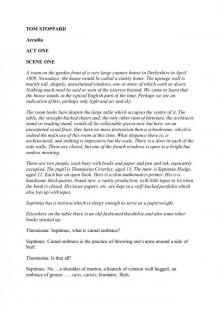- Home
- Iain Pears
The Dream of Scipio Page 12
The Dream of Scipio Read online
Page 12
“You talk like a banker, not a man of God.”
“I talk, I hope, like a man who takes due care of the funds entrusted to me,” Ceccani said severely. “You are not asking to borrow my money, but the church’s. I am charged with its good governance. I have many requests, most of them worthy, still more of them desperate. It is my regrettable task to have to choose. And, sir, I must say you do not seem like the best or most secure way of laying out money.”
The comte was not a man to beg; his dignity was too great to allow such a thing. But the way his jaw tightened; the look of despair that passed over his flaccid, somewhat stupid face; the set of his shoulders; all these confirmed what Ceccani already knew: This was a man waiting to fall into his hands.
“Surely,” the cardinal said, delicately putting his touch onto the most painful of wounds, “you must understand that the king of France has many difficulties at the moment. You cannot expect him to trouble himself over such matters.”
“I can, and I do. I fulfilled my obligations to him, even though I had my own troubles. I left my new wife, raised a mortgage on my land to pay for my soldiers, marched the moment I was summoned. I served him faithfully.”
“Then if he does not reciprocate, your duty to him is the less, is it not? He is defeated in battle, yet will not repay the help you offered him at that time.”
“He is still my lord.”
“But so are the counts of Provence. Perhaps the Lady Joanna might be prevailed upon?”
“I think not. I have in the past rendered her homage, but not service. She owes me nothing, and has troubles of her own at the moment, I believe.”
The cardinal sighed. “Of course, we all have troubles. And any man who might help with those would earn the blessing and indulgence of many. If, for example, you chose to ally yourself to the countess, and found some means by which you could dissociate yourself from the king of France, then you might find yourself amply rewarded and compensated for any loss.”
“I would forfeit all my lands in France.”
“Which produce about seven hundred livres a year, as I understand. That could be rectified.”
“And my ransom, and my cousins’ ransom?”
“Those would both be forgiven you. Indeed, you might well find yourself compensated by double their value.”
“And what service, exactly, would be required of me?”
The cardinal smiled. “Nothing.”
The count smiled back for the first time. “No countess or cardinal is ever so generous for nothing.”
“A word then. I believe you have in your service a man who is currently seneschal of Aigues-Mortes?”
“That is true.”
“Bring him to Avignon. And make sure he does as he is told. His obedience will pay your ransom.”
“Gracious sir,” this man cried, “God is not with us. We see it all around us, and we see it here today. We are without guidance, and we need a shepherd to show us the way. Help us, sir. Tell us your opinion. Help us make a choice.”
Still Faustus dissented. “I would not presume to interfere,” he said. “I have no right to do so. The choice of bishop is your own, and must be taken by you. But I must disagree when you say God is not with you; you must learn to see. For His ways are often hidden from man’s sight, and are not easily discerned. Rather than interfere, then, I wish only to give you succor by showing how what I say is true. For I have recently witnessed a miracle, a great sign of the Lord’s care for all his sheep.”
The crowd rumbled with excitement at this, as all were in awe of miracles.
“There is a man among you known as a great sinner, careless of God. Throughout his life he had given himself up to the things of this world only, and turned his face from the faithful. And yet the Lord cared for him and gathered him in. He had a dream in which he saw a man weeping, and asked, ‘Why do you cry so? What can I do to stop your sadness?’ And the other said,
“ ‘Save your soul, for I weep for you.’
“And he looked up, and this sinner saw the marks of the crown of thorns on his head, and saw the wounds in his hands, and, in his dream, fell down before him and said, ‘Lord, I believe.’
“The next day this man came to me on hands and knees, begging to be baptized, and so I did. And here he sits with us now. His name is Manlius, servant of God.”
The tale caused all except Manlius to rise from their seats and rejoice, and when they quieted once more, one man stood up and said, “Sir, surely this is a sign that the Lord has work for this man, that He should appear to him now? What is your opinion?”
“I do not know,” said the bishop. “I simply rejoice at a sinner saved, a man of such skill and birth and wealth and learning now adds faith to all his other qualities. It may be indeed that the Lord needs him, or that He sees our needs more clearly than we do ourselves.”
“He must be our leader,” shouted another man. “This must be the meaning of this vision. Manlius must be our bishop.”
Even then, after such careful preparation and such an allegorical interpretation of Manlius’s embracing of the faith, there were doubts among many in the meeting, whose prevarications had been stoked well in advance by Felix’s family, and particularly Caius Valerius, who saw what he considered his bishopric being stolen from under his very nose. There was no split in the meeting, but even Faustus’s great authority had to be deployed in full to achieve the result he desired. And he, afterward, had a sense of foreboding. He knew, of course, that raising Manlius would not be easy; he had not realized that the Adenii clan would object so much. He was a bishop. But a politician enough to realize that if Manlius was to be effective, he would have to deal with what threatened to be a constant thorn in his side.
He could have retreated, of course. Announced that the will of God was not with the meeting, called an end to it all in order to reconsider. But this man of great qualities and high ability had one fault: His belief in his judgment, and belief that his judgment and the will of God were one and the same, was all but complete. For his recommendation to be rejected was the same as the entire congregation throwing off the word of the Lord; it could not be allowed. He pressed, and insisted, used all his skills, and finally prevailed. Manlius, weeping with dismay, was dragged from his chair and brought to the front of the meeting.
All his plaintive cries about his unworthiness were brushed aside in the enthusiasm for what was now accepted as God’s will. He cried with humility, threw himself at Faustus’s feet, and begged to be relieved of this terrible burden for which he was entirely unfitted, and by his behavior began to confirm his suitability for the position.
At the end, only Manlius himself was unhappy, disgusted by his own actions and even more contemptuous of the vessel he had chosen to save everything he held dear. It was necessary; that he saw all too well. But the utter vulgarity of it, the stink of the congregation in their enthusiasm, the incoherent babble of their voices, the way they had been so easily led, left him in a misery so profound it endured for days afterward.
ON THE OCCASION of his thirty-first birthday, Julien gave a dinner party at a small restaurant near Les Halles, for he was leaving the life of the Lycée and had won a position teaching at the University of Montpellier. It would be a new life, far from Paris, and deserved to be marked with some style. As he did not care for large gatherings, he invited three friends only: Bernard Marchand, Marcel Laplace, and Julia Bronsen. The friendship between the three men was a strange one, for neither of his two friends liked the other, and endured each other’s company only for his sake. Both knew the moment they saw Julia that she was different to Julien’s usual women friends, with the result that the evening, inevitably, turned into a hunt to discover why.
The times had strained even old friendships that would have endured easily had no pressure been exerted on them. The Great Depression had arrived, and with it had come hardship for many and worry for most. It had not greatly affected Julien; the modest fortune left to him by his father he ha
d guarded with the utmost conservatism, and the residual provincialism that showed up in a profound suspicion of anything to do with high finance meant he had still had a comfortable addition to his salary every month to provide those luxuries that he now considered mere necessities.
Others had fared less well. Claude Bronsen’s business empire, he gathered from Julia, had been devastated; factories had closed, businesses dwindled, thousands he had employed had been dismissed forever. He was still rich, certainly, but not nearly as wealthy as when Julien first met him, and the reverses he had suffered galvanized him into a second youth. No sooner had a plant closed down in one place than he was laying plans to make the rest more efficient and profitable. Julien could imagine the fanaticism he brought to the task, for being more successful than others was part of his being, and he would labor at it until it was reestablished, no matter how difficult the bleak economic climate made his task.
“It’s like being an orphan,” Julia said in one of her letters. “I haven’t seen him for months. It is oddly liberating. And now that I know he’s coming back in a week or so I find myself apprehensive. I don’t know why; it’s not as if I will see him if he is in Paris any more than if he is in Milan. But I have decided to rent myself a little house by the sea for the summer. Somewhere in the Camargue, I think, where I will see no one, and be able to pretend there are no such people as fascists or communists, and no such things as depressions or gold standards, strikes or riots. I’d invite you, but I know you won’t come, and to be frank, I don’t want even you to disturb me. I have done no useful work for months and am dreadful company.”
Between Julien and Bernard there was an amity of relaxation; between Julien and Marcel, a friendship of interest. Both were loyal in their way; both believed fervently that the course they took was correct. Both Bernard the résistant and Marcel the collaborator were engaged—to borrow the lofty phrases of Manlius Hippomanes—in the business of salvation, and both were prepared to abandon humanity in order to achieve their aims. Both were, or became, accidental fanatics; circumstance brought out tendencies that otherwise would have remained hidden. That evening over the dinner that Julien had carefully crafted, from entrée to dessert, the first signs were there to be seen.
Bernard was amusing in a way that Marcel could not imitate, and did not wish to imitate. He was too serious; devoted to books and his religion. In place of skiing holidays, Marcel went, every year, to Lourdes, to help the sick and the poor and to bathe in a faith that was never shaken, and which Julien envied, remembering still the faint loss he felt when he was removed from his catechism lessons. He endured the sneers of Bernard with stoical fortitude as confirmation of his faith.
For Bernard was not only a freethinker, he was an ostentatious atheist, and took a perverse delight in insulting those with any religious sensibilities whatsoever. All were fools or cowards, often dangerously so, wedded to lost causes like the monarchy, believing in some lost idyll of order and rank that had never existed. A century and a half previously he would have sent people to the guillotine. A century and a half previously, Marcel would have been one of his victims.
Curiously, they were not dissimilar in appearance, although character obscured the resemblance so much that both would have been shocked at the idea that they looked alike. Both had fair hair, and both had green eyes. But, where Marcel cut his hair short and oiled and combed it so there was never a hair out of place, Bernard’s grew long, hanging just close enough to his collar to indicate a bohemian soul. Marcel’s eyes gazed steadily at whomever he was looking at, giving an impression of calm and consideration; Bernard’s never rested in one place for more than a few seconds. Even when studying Julia, he seemed to absorb her in fragments, while also examining the food, the way the waiter served, the diners at the other tables, all details Marcel scarcely noticed. But the greatest difference of all lay in their expressions: Marcel somber, always serious, often with a frown; Bernard always smiling, leaning forward into the conversation, managing to suggest fascination with whatever was being said.
Julien’s later dilemma could be seen in microcosm at that dinner, indeed Julia did see it; she was more perceptive because she saw with fresh eyes. She noted without commenting how Bernard interrupted the other two ceaselessly; interpreted Marcel’s seriousness and the frivolity of Bernard’s replies. And she saw how Julien took upon himself the role of pacifier, steering the conversation this way and that, trying to avoid the pitfall of open argument. It was a mistake to invite both of them to sit together; they could not help battling for his sympathy and her interest, even though both knew that Bernard would win, if victory there was to be.
In other circumstances, Julia would not have been so determinedly polite; she had not the patience. Rather she would have encouraged a brawl, or at least permitted it; it would have been good for Marcel, at least, to lose control of himself so utterly. She also noted that although Bernard was the more genial, he was the more ruthless, prepared to use his quickness to impose all manner of tiny humiliations to win his point. Marcel doggedly plodded on, severely and seriously arguing in a straight line. “But really, you must see what I am saying.”
Bernard did, of course; saw it long before Marcel did, but that was of no concern. He did not argue from principle; he argued to win. His delight was in tripping the slower one up, of demonstrating his superiority in countless little ways. Julia saw also what Julien did not, that there was the seed of true hatred there, deep buried, one expressed in the barely concealed contempt, the other in the detestation that the slow must develop when the quick strive to humiliate them. Perhaps Julien was right after all; it was only the thin crust of civility that kept these more dangerous emotions in check.
Because Marcel was polite, and because Julia was beautiful, he refrained from discoursing on the malign influence of Jews in France; he never got to the point where belief could overwhelm courtesy. Rather he talked about art, which served as a more civil cloak for the same thing. In Marcel, the conventionality of his tastes matched the orthodoxy of his religion and the conservatism of his politics. Julia, and people like her, infuriated him.
“It is not a question of understanding,” he said at one stage during the dinner. “I am talking about responsibility. People like you have turned away from responsibility. Instead, you suit yourself.”
“I don’t think I understand,” Julia said.
“Artists should be servants. That is their glory. Either of kings or priests. You have broken that association and exist only for yourself. What was it that man said? Can’t remember which one. He painted some pictures in a church and the priest thanked him and said God would be pleased with such a gift. And he snorted and said, ‘Who cares about God? I’ve pleased myself.’ You are unrooted and egotistical, and you call it the search for beauty.”
No one at the table needed the meaning of the statement explained. Everyone knew what “unrooted” meant.
“I call it nothing of the sort,” Julia replied, not even considering getting angry, so foolish was the attack, dismissing the implications as not worth contesting. “I do not think I can please God—if there is one—if I do not satisfy myself. Am I supposed to give things which aren’t even good enough for me? I paint. Some think quite well, others think badly.”
“Why?”
“Because it pleases me. And it provides me with a small income which keeps me from feeling totally dependent on my father.”
“You might as well be a typist, then.”
“That wouldn’t please me.”
And here Bernard broke in. “She is misleading you, dear Marcel. Telling you lies to put you off the hunt. She is not saying why it pleases her.”
“It pleases me because when I am working well I am aware of nothing. Because when I have done something good I know it is good, and no one else’s opinion is of any consequence. And occasionally, not often, I do manage to do something good. What is more, I know I can do better. So I keep on trying.”
“What do y
ou mean by ‘good’?”
“Oh, I don’t know,” she said impatiently. “Has anyone ever managed to say what it is? A catching of some idea. Reflecting it, pinning it down.”
“But it is rubbish, what you do. No technique, no skill. Just self-indulgent daubs on canvas. And the less people understand it, the happier you are. And you’re mistaken. I think people understand it all too well. That’s why they don’t buy it.”
Even his expression seemed stupid, for Marcel’s tendency to frown as he spoke gave the impression that thinking was an effort for him. It was a mistake; many people underestimated him, as Julien told her later. In both intelligence and determination he was a good match for Bernard.
“And you?” she asked.
“I don’t compete with either of them,” Julien said. But with a little smile that gave another answer. He did not feel he needed to.
“Personally, I’ve always found that the less people are interested in art, the stronger are their opinions about it,” said Bernard smoothly. “In my case, I would like actually to see some of your work before I pass judgment. If, that is, you won’t mind me denouncing you as a self-indulgent fraud the moment I clap eyes on the ridiculous rubbish you try to foist on the public.”
Julia laughed; Bernard had sapped the implicit violence from the conversation and forced Marcel into awareness of his offensiveness. He had not the slightest intention of looking at her pictures; it was something in which he had absolutely no interest. He was curious about her, mainly because he picked up Julien’s fascination and would have tried to capture her for himself had he suspected for a moment it was possible. But even he— generally insensitive on such matters—could grasp that there was something perfectly untouchable about her. And Julien realized he had been outwitted—he should have intervened, not Bernard.

 The Dream of Scipio
The Dream of Scipio Stone's Fall
Stone's Fall The Last Judgement
The Last Judgement An Instance of the Fingerpost
An Instance of the Fingerpost The Bernini Bust
The Bernini Bust Arcadia
Arcadia Death and Restoration
Death and Restoration The Raphael Affair
The Raphael Affair The Titian Committee
The Titian Committee The Immaculate Deception
The Immaculate Deception Giotto's hand
Giotto's hand The Portrait
The Portrait The Bernini Bust ja-3
The Bernini Bust ja-3 Death & Restoration ja-6
Death & Restoration ja-6 The Immaculate Deception ja-7
The Immaculate Deception ja-7